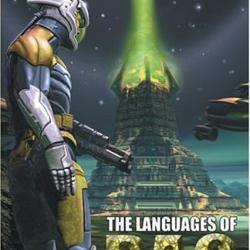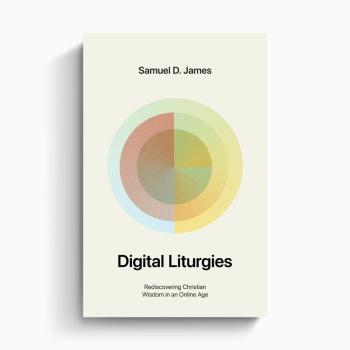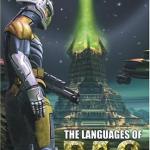Review of Gilead by Marilynne Robinson
By JUSTIN HAWKINS
Marilynne Robinson’s authorship of Gilead is the most convincing argument for reincarnation that has ever entered my mind. That is not because the book is in any way about Eastern religion; it is not. Rather, it is entirely from the perspective of an Iowan pastor in his seventies. But Robinson makes his perspective so rich, so full of Christian joy and pathos – in sum, so very real – that one is sure she must have been just such a pastor in her former life.
But since reincarnation is not in harmony with Christianity, it cannot serve as an explanation for this book. So the second best explanation must be the case: Marilynne Robinson is a genius. And such a judgment would find ample support; Gilead was awarded the 2005 Pulitzer Prize for Fiction, and has continued to attract a sizeable and eclectic readership, both at the popular level and among the literati, for nearly a decade since its publication.
Gilead is the epistolary reflections of Reverend Ames, an aging country parson, toward his youthful son of a second, post-widower marriage. The aging Ames is concerned that his impending death will occur before his son is of sufficient age to grasp the depths of his fatherly and ministerial wisdom, so he takes to writing it all down. The result is a missive of such beauty that any pastor’s son would rejoice to receive it.
Rev. Ames is something of a Midwestern mystic. His meditations on the beauty of nature and its echoes of the beauty of the Creator God recall Jonathan Edwards who is, by Robinson’s own admission, one of her foremost intellectual inspirations. In Robinson one finds a properly balanced Christian view of nature: it is neither to be pillaged for its resources (contra those libertarians and arch-capitalists for whom the only value is that which is monetarily quantifiable), nor deified in its own right (contra the neo- paganismof Wendell Berry). He also reflects on whether the life of a country parson constitutes a life well lived, even if its ceaseless work is met with no earthly accolade. He mulls the wisdom of the Midwestern ‘ancients’ of a generation past: “To be useful was the best thing the old men ever hoped for themselves, and to be aimless was their worst fear. I have a lot of respect for that view” (56). And among these scattered proverbs, the foremost characteristic of his thought is a reverent wonder—wonder at both God and the world. And in that wonder he revels: “I never could have imagined this world if I hadn’t spent almost eight decades walking around in it” (64). To be privy to his nostalgic reminiscences is to steal a glimpse into a devout man’s prayer chamber; the foremost challenge is reminding oneself that this is a work of fiction.
That Robinson’s view of reality echoes that of Edwards is no accident. She has dedicated herself to advancing a Calvinistic view of culture that is often so subtle as to draw the reader in almost unwittingly, as if the sheer beauty of the vision wields a seductive power. Yet in Gilead we are being seduced to joy, not to heartbreak. This is the joy of Calvin himself. Yet only a theologically astute reader feels the contours of the Genevan pastor’s mind in the meditations from the plains of Iowa. This Calvinism is not the reductionist version that boils down the insights of Calvin and Edwards into Five Points, or into the “sovereignty of God,” a modern euphemism for Predestination. Rather, this Calvinism takes its cues from a Calvin for whom the world is the theater of God, and from an Edwards for whom every beauty we encounter is but a dim image and a fleeting shadow of the ineffable beauty of the divine – a beauty we may, by the grace of God, one day hope to enjoy perfectly.
Nor is this beauty only to be found in extraordinary circumstances. Burke and Kant have given us the language of the “sublime,” but Robinson is embarked upon a “re-enchantment of the ordinary.” Thus Rev. Ames is impressed by the ineffable beauty of water, which he cannot consider without hearkening to the baptismal font, and of food, which always and everywhere reminds him of the powerful symbol of the Eucharist. Historic Christianity supplanted old pagan notions of sacred groves and deified rivers, but the world it describes is not thereby less enchanted. The Psalmist heard the glory of God declared from the heavens; Edwards saw it in the mechanics of a spider; Robinson sees it in the prism of a raindrop.
The power of such a vision, wielded and crafted by the hands of a master of Robinson’s stature, is immense, and it has roused the interest of even those outside the church. A recent column in the New York Times describes the cultural trend of the decline of faith in literature, nothing that “If any patch of our culture can be said to be post-Christian, it is literature.” Yet among the few exceptions to this trend noted in the article is Marilynne Robinson. Thus, Robinson’s work is representative of the noble, deeply evangelical effort to portray a vision of the world that beckons the reader, that calls upon the enchantment of the world’s beauty to stir up in readers their deep desire for such a world to be true; it is the salt that whets an hitherto-unknown thirst that only Christ can slake.












